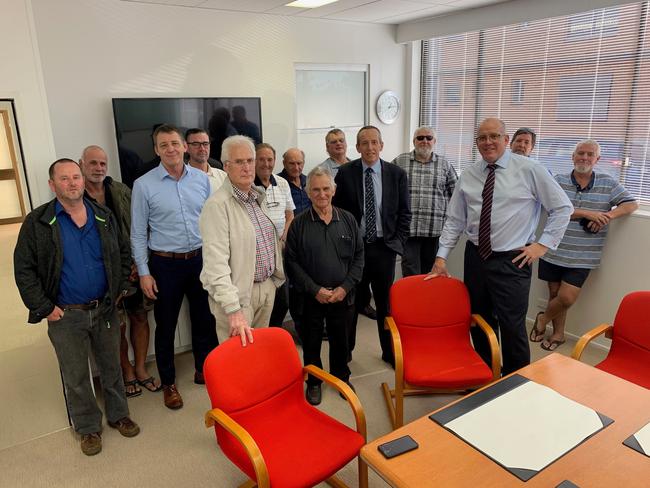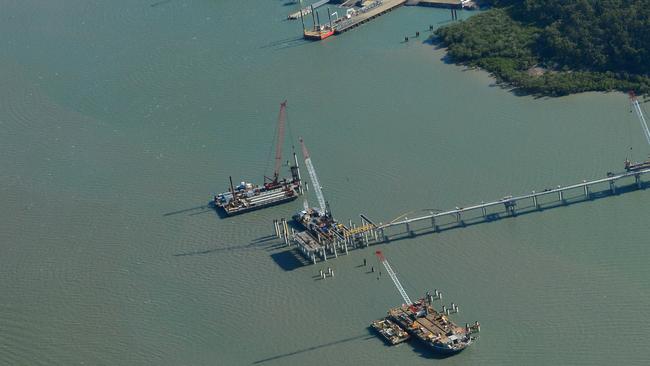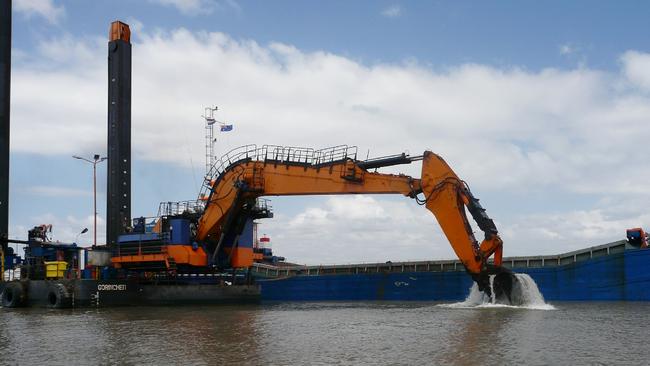Fisher class action against Gladstone Ports Corp in limbo after lawyers quit
Almost seven years after 150 fishers and business owners across Queensland and NSW lodged a multimillion-dollar claim against the state-owned Gladstone Ports Corp, the class action is in jeopardy. See why

Police & Courts
Don't miss out on the headlines from Police & Courts. Followed categories will be added to My News.
There’s been a shocking turn of events in the multimillion-dollar class action case where Queensland and New South Wales seafood industry business owners are suing government-owned entity Gladstone Ports Corporation.
More than 150 commercial fishers and associated business people – from Bowen to Sydney including Keppel Bay, Stanage Bay and Gladstone region operators – are suing GPC for $100 million-$150 million with the initial claim lodged in July 2017 amended multiple times since.
They claim works carried out by the corporation in the Gladstone Harbour negatively impacted the water quality, fish health and fish numbers triggering a domino impact on the industry members’ businesses.
The work, including dredging and building of a bund wall, were carried out in about 2010.
The court previously predicted a trial would run for 12 or more weeks due to the amount of evidence both parties had gathered in the case.
International law firm Clyde and Co, which has offices in multiple Australian cities, was representing the plaintiffs up until Wednesday morning.
However, Barrister David Ananian-Cooper, representing Clyde and Co, made an application in the Supreme Court in Rockhampton for the law firm to be withdrawn from the records as representing the plaintiffs.

Justice Graeme Crow said the material filed indicated “the entire team that was dealing with the matter have left the firm, the firm’s not been paid, instructions have been withdrawn”.
The team that left Clyde and Co late last year was led by Melbourne-based Maurice Thompson and now works for Holman Fenwick Willan.
Justice Crow granted Clyde and Co its request, stating this left no proper law firm on the record for the matter to move forward.
“The circumstances are highly unusual in a complicated matter,” Justice Crow said.
Hervey Bay-based lawyer, Chris Thompson from Law Essentials, who was the lawyer for the first complainant Murphy Operator Pty Ltd before it became a class action case, did appear on behalf his clients during the proceedings.
The court heard he was a personal representative for three lead plaintiffs and had a relationship with them since 2010 and did not have the capacity to be the class action lawyer.
“While I could certainly receive documents, I’ve got no capacity to do anything with those documents other than maybe forward them on to the plaintiffs, depending on what the documents that are actually served,” Mr Thompson said.
“Serious things that need to be advanced in the case and deadlines or whatever it may be, then I just have no capacity, nor do the lead plaintiffs, to deal with such documents.”
Mr Ananian-Cooper said Clyde and Co also sought costs – the application for which had been filed in February.
Mr Thompson said the plaintiffs did not have the ability to deal with a costs application being unrepresented after Clyde and Co terminated their retainer because the “whole team left” the law firm and the law firm didn’t have the ability to advance the case.

He said the retainer was terminated so the plaintiffs could get advice from another law firm, then there was an issue with the funder Litigation Capital Management (LCM) that arose, and the plaintiffs couldn’t pursue that path.
Mr Thompson said the advice received was it would take four to eight weeks to resolve that issue.
Justice Crow did not make any orders regarding costs as a result of this information.
GPC representative Douglas Savage KC, raised concerns about these delays, stating Maurice Thompson handed in his resignation in November and on the last mention of this case, that were advised it would be a three-week delay.
Mr Savage said if the issues were not resolved by the funder and plaintiffs, it would need to go to arbitration (an independent person or body officially appointed to settle a dispute).
He alleged the plaintiffs had refused to use any of the nominated solicitors put forward by LCM.
Mr Savage also raised concerns this would lead to no funding for the plaintiff's case while the team for GPC continued working, running up legal fees and paying to keep experts on retainer.
With “no light at the end of the tunnel”, Mr Savage said the defence team was considering bringing an application to dismiss the case when it is next mentioned in court.
A legal representative for LCM said: “It’s really about getting a cheaper quote”.
Justice Crow adjourned the case to May 20.




